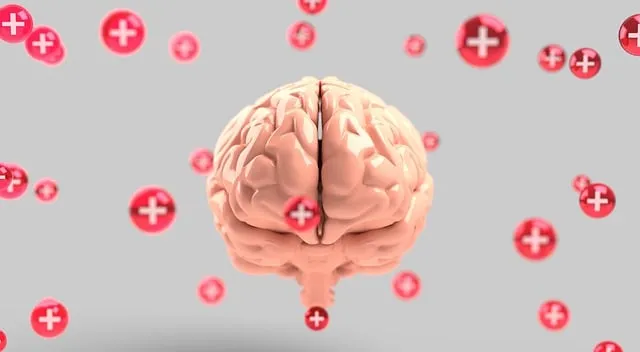The Denver Kaiser Permanente mental health facility provides comprehensive support through evidence-based programs like Stress Management Workshops and Emotional Intelligence training, offering immediate crisis intervention. As a community hub, it promotes well-being by raising awareness, breaking stigma, and improving access to care via diverse initiatives, including on-site outreach and data-driven program optimization. This holistic approach fosters supportive environments, enhancing mental health outcomes for individuals and communities.
Mental health advocacy initiatives play a crucial role in shaping supportive communities. This article explores various aspects of these efforts, with a focus on the Denver Kaiser Permanente mental health facility as a thriving hub for care and inspiration. We delve into the profound impact of advocacy, highlighting successful strategies and programs. Additionally, we discuss future directions, emphasizing the importance of measuring success and expanding access to comprehensive mental healthcare. By examining these initiatives, we aim to illuminate paths towards enhanced well-being for all.
- The Denver Kaiser Permanente Mental Health Facility: A Hub for Care and Advocacy
- Understanding the Impact of Mental Health Advocacy Initiatives
- Strategies and Programs in Mental Health Advocacy
- Measuring Success and Expanding Reach: Future Directions for Advocacy
The Denver Kaiser Permanente Mental Health Facility: A Hub for Care and Advocacy

The Denver Kaiser Permanente Mental Health Facility stands as a beacon of hope and comprehensive care for individuals navigating mental health challenges. This facility isn’t just a medical center; it’s a hub where advocacy, education, and support converge. Through a multifaceted approach, Denver Kaiser Permanente empowers its community with tools to manage stress, develop emotional intelligence, and access crucial crisis intervention guidance.
The Stress Management Workshops Organization, recognized within the facility, offers evidence-based programs designed to equip individuals with coping mechanisms for everyday stressors. Similarly, emotional intelligence workshops foster self-awareness and empathy, contributing to healthier interpersonal relationships. Moreover, trained professionals provide prompt crisis intervention, ensuring that those in distress receive immediate assistance tailored to their unique needs.
Understanding the Impact of Mental Health Advocacy Initiatives

Mental health advocacy initiatives play a pivotal role in shaping communities and improving individual well-being. One notable example is the Denver Kaiser Permanente mental health facility, which has been at the forefront of these efforts. Such facilities act as hubs for various programs aimed at raising awareness, providing support, and offering coping skills development sessions to individuals across diverse demographic groups.
Through community outreach program implementation, these initiatives reach beyond the confines of traditional healthcare settings, fostering emotional healing processes within communities. By integrating mental health education into everyday life, they break down barriers associated with stigma, encouraging open conversations and empowering individuals to seek help when needed. This holistic approach not only enhances access to care but also contributes to a broader culture of mental well-being and resilience.
Strategies and Programs in Mental Health Advocacy

Mental health advocacy initiatives encompass a wide range of strategies aimed at raising awareness, reducing stigma, and improving access to care. One notable example is the Denver Kaiser Permanente mental health facility, which integrates community outreach programs into its service delivery model. These programs involve sending health professionals directly into communities, where they conduct educational sessions, offer screening services, and connect individuals with appropriate mental health resources.
Effective communication strategies are a cornerstone of these initiatives. The Stress Management Workshops Organization, for instance, utilizes interactive seminars, peer support groups, and digital platforms to foster open dialogue about mental health. By combining traditional outreach methods with innovative communication approaches, such organizations enhance community engagement and ensure that mental health services reach underserved populations. This holistic approach not only improves individual well-being but also cultivates a supportive social environment, ultimately contributing to the overall mental health of communities.
Measuring Success and Expanding Reach: Future Directions for Advocacy

Measuring success is a vital aspect of any advocacy initiative, especially when it comes to mental health awareness. At the Denver Kaiser Permanente mental health facility, they’ve found that tracking key metrics can help optimize their efforts. By evaluating the impact of their programs and events, such as workshops on empathy building strategies and resilience-focused discussions, they can identify what resonates most with the community. This data-driven approach allows them to adapt and refine their advocacy campaigns, ensuring every resource is utilized effectively.
Expanding reach is another critical direction for future mental health advocacy. With the growing recognition of mindfulness meditation as a powerful tool for stress reduction and emotional well-being, there’s an opportunity to integrate these practices into more accessible settings. By collaborating with local schools, workplaces, and community centers, Denver Kaiser Permanente can bring empathy building strategies and resilience-boosting activities to a wider audience. This not only increases awareness but also fosters a supportive environment where individuals can develop coping mechanisms for their mental health challenges.
The Denver Kaiser Permanente mental health facility serves as a shining example of how advocacy initiatives can create a supportive hub for care. By understanding the profound impact of these programs, we can implement effective strategies and expand their reach. Moving forward, measuring success and adapting to evolving needs are crucial steps to ensure that mental health advocacy continues to make a tangible difference in communities worldwide.






